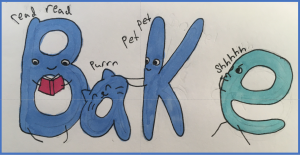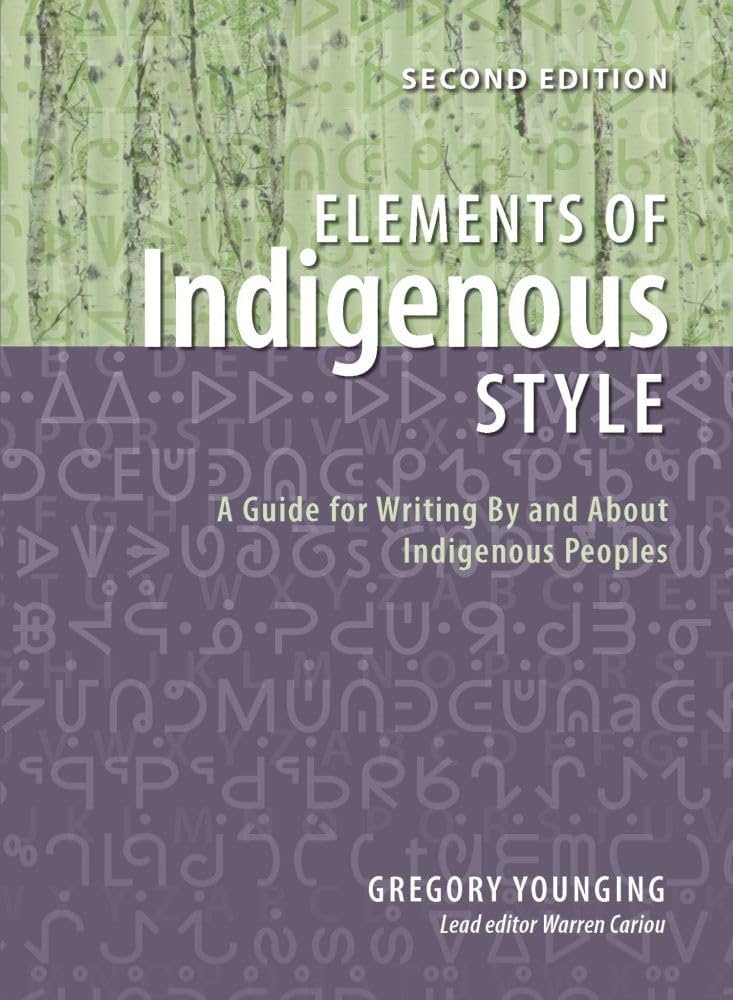The second edition of Gregory Younging’s Elements of Indigenous Style was released last month. A launch event with editors Warren Cariou and Lorena Sekwan Fontaine will be held on Wednesday, February 12.
In praise of the silent e

Have you ever thought of what we owe
To the humble silent e?
At the ends of words it curls itself
Always so … silently.
You’d mistake a moose for the cow’s friendly moos
Without the silent e.
You’d ruin the “danc” the “whol” night through
Without the silent e.
You’d “serv twelv olivs” with a bashful v
Without the silent e.
You’d cringe each time you had to say “cring”
Without the silent e.
You’d dress in cloths rather than clothes
Without the silent e.
You’d be in “aw” of seeing a huge wooly “ew”
Without the silent e.
You’d upset letter z if you went for a “snooz”
Without the silent e.
You’d “bak” a “cak”; what would that “tast lik”?
Without the silent e.
And by the by, if you want to say bye
You need the silent e.
So please, oh please, hear my pleas
And “prais” the silent e.

This poem sprang into my head as I was working on my book The Bake Sale, which is the third in the Meg and Greg series of readers that my sister—Elspeth, a literacy teacher—and I write for children learning to read with dyslexia or another language-learning challenge. The Bake Sale has four stories, all of them introducing words that end with a silent e. I knew all about this e, often called a magic or bossy e, which tells us to pronounce the previous vowel with a long sound (or, to say its name). Before writing this book, though, I had no idea that the silent e has many other jobs in the English language.
I learned from Elspeth that the silent e gives us other pronunciation clues: when to use a soft sound for the letters c and g, and when to make a voiced or an unvoiced sound for the digraph th. The silent e also prevents us from misreading words that would otherwise look like a plural form. And the list goes on! The silent e “protects” the letter v, which never ends a word, and the letter z, which never goes solo at the end of a word. The silent e also lengthens otherwise very short nouns and verbs, and it distinguishes homophones where one is a functional word and the other a content word.
Can you spot all of these silent e jobs in the poem?
Comments (2)
Comments are closed.




Delightful poem and learned a lot about the silent e.
Have just taken it for granted over the years without ever thinking how important it is in the English language.
Thankyou.
Thanks, Ann. I agree; it’s interesting what we take for granted in English when we haven’t had to learn to read or spell systematically.
Glad you enjoyed the poem.